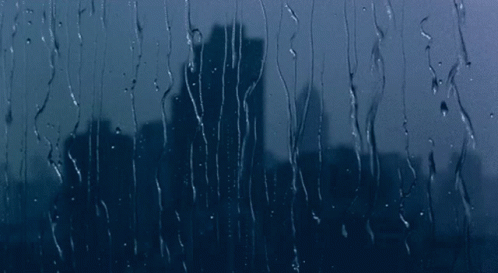Ten phrases to talk about cold and wet weather like a true Italian

Although Italy is known for being balmy and bright, Italians have plenty of expressions and proverbs to refer to cold and rainy weather. Here are ten phrases you can throw into conversation in these chilly days.
The weather in Italy has taken a turn for the colder and wetter, with storms and high winds sweeping through the country.
As autumn turns into winter, the mercury is set to drop even further, setting teeth chattering and extremities tingling.
Of course, the temperature difference is markedly different between the northern alpine regions and the much milder southern regions.
READ ALSO: From beer to hairdryers: 10 Italian words that come from German
Still, Italians from all corners of the peninsula share a love of talking about how cold and wet it is, so if you’re an Italian language learner who wants to impress with your command of cold-themed lingo, we’ve got you covered.

Fa un freddo cane
When the cold is really biting, simply saying fa freddo (it's cold) doesn't go far enough. Fa un freddo cane is an idiomatic phrase used in spoken Italian on those freezing cold days. It means, "It's freezing cold!"
The phrase literally translates as, "It makes a cold dog", which doesn't seem to make a lot of sense. But it means something more like "it's dog cold!"
Dogs don't have much to do with the phrase in reality, much like with the English phrase "it's raining cats and dogs". It's just a (polite) way of emphasising how awfully cold it is. For more language tips on this phrase, see here.
Ho il naso gelato
"Sono stanco e ho fame, ho la coda gelata, e il naso gelato, e le orecchie gelate, e i piedi gelati".
This adorable quote from one of the puppies in Disney's 101 Dalmatians pretty much sums up winter. Everything is cold and frozen.
As the family of dogs made their way through freezing snow drifts to escape the evil clutches of Cruella de Vil, one of the exhausted little fellas said, "I'm tired and I'm hungry, my tail is froze, and my nose is froze, and my ears are froze, and my feet are froze".
READ ALSO: 10 of the most common Italian translation fails
Of course, it should be frozen in English but he's only little for getting past participles right.
Although you'll likely best know gelato as a staple of Italian food, in winter you'll probably have an 'ice cream nose' at some point. It really means you have a frozen nose, as gelato simply means 'frozen' from the verb to freeze, 'gelare'.
Che freddo, ho i brividi!
When you want to express how chilly the weather is making you feel, you might want to convey that it really is so cold that you're shivering.
So you could say through chattering teeth, 'Che freddo, ho i brividi!' to mean, 'It's so cold! I've got the shivers!'
Ho la pelle d'oca
Another way of saying that you're suffering from the freezing temperature is to compare your skin to that of a goose's.
In English you'd say, 'I've got goosebumps', whereas the Italian equivalent is close: 'Ho la pelle d'oca' means 'I've got goose skin'.
Cielo a pecorelle acqua a catinelle
If you really want to show off your language chops, try throwing this Italian proverb into conversation. It literally means, "Sky in sheep's clothing, water in buckets" and is the great classic of Italian weather proverbs.
Not only does it give a clear picture of the impending rain shower, it also has a solid scientific basis.
READ ALSO: 12 of the most useful Italian words you need to know
Those small clouds similar to lots of little cotton balls - that look like a flock of sheep - are cirrocumulus clouds found between six and seven thousand metres above sea level. They indicate the presence of cold and unstable air at that altitude, often signalling the arrival of a humid warm front accompanied by possible thunderstorms or showers.
So, the next time you see this cloud formation in the sky, you can say 'Cielo a pecorelle acqua a catinelle!' and therefore both sagely predict the weather and impress people with your Italian at the same time.
Viene giù che Dio la manda
"It's raining and God is sending it", was the custom, blaming God for the bad weather. Blasphemy is a delicate topic in Italy, a country that is overwhelmingly Catholic, but you'll notice that a lot of Italian phrases curse God or Mary (Madonna).
If you really want to emphasise how much it's raining, this phrase will express it well - just be careful who you say it to.
Piove di brutto
Perhaps you want to say more than it's just simply raining. The heavens are opening and it's bucketing down, it's definitely not a little drizzle.
Commenting 'piove' doesn't quite cut it in this case. Adding on 'di brutto' makes it clear that it's raining 'badly'. You can use 'di brutto' in a lot of contexts to emphasise your point, just as in English you might say you want something badly. It isn't always necessarily negative, rather that it magnifies and adds weight to your point.

READ ALSO: 19 of your favourite Italian words (and some of ours)
Piove a dirotto
The expression 'piove a dirotto' is used to describe an abundant, copious amount of rain. The origin of the term is believed to be linked to the etymology of the adjective 'dirotto', which means 'broken'.
So it provides the imagery of rain breaking into several parts, a heavy rainstorm therefore, like a river bursting its banks.
Si muore di freddo
It's so cold that you can't feel your fingers or your toes and all you can do is imagine getting somewhere warm and cosy before you turn into a complete ice block.
'Si muore di freddo' gives the really rather serious impression that it's so cold, you'll die because of it - equivalent to the English 'I'm dying of cold'.
Piove sul bagnato
If it's so wet that you just can't get any wetter, this phrase will come in handy. 'Piove sul bagnato' means it's raining on the wet.
Handy for those days when you wonder if you'll ever see the blue sky again.
Comments
See Also
The weather in Italy has taken a turn for the colder and wetter, with storms and high winds sweeping through the country.
As autumn turns into winter, the mercury is set to drop even further, setting teeth chattering and extremities tingling.
Of course, the temperature difference is markedly different between the northern alpine regions and the much milder southern regions.
READ ALSO: From beer to hairdryers: 10 Italian words that come from German
Still, Italians from all corners of the peninsula share a love of talking about how cold and wet it is, so if you’re an Italian language learner who wants to impress with your command of cold-themed lingo, we’ve got you covered.

Fa un freddo cane
When the cold is really biting, simply saying fa freddo (it's cold) doesn't go far enough. Fa un freddo cane is an idiomatic phrase used in spoken Italian on those freezing cold days. It means, "It's freezing cold!"
The phrase literally translates as, "It makes a cold dog", which doesn't seem to make a lot of sense. But it means something more like "it's dog cold!"
Dogs don't have much to do with the phrase in reality, much like with the English phrase "it's raining cats and dogs". It's just a (polite) way of emphasising how awfully cold it is. For more language tips on this phrase, see here.
Ho il naso gelato
"Sono stanco e ho fame, ho la coda gelata, e il naso gelato, e le orecchie gelate, e i piedi gelati".
This adorable quote from one of the puppies in Disney's 101 Dalmatians pretty much sums up winter. Everything is cold and frozen.
As the family of dogs made their way through freezing snow drifts to escape the evil clutches of Cruella de Vil, one of the exhausted little fellas said, "I'm tired and I'm hungry, my tail is froze, and my nose is froze, and my ears are froze, and my feet are froze".
READ ALSO: 10 of the most common Italian translation fails
Of course, it should be frozen in English but he's only little for getting past participles right.
Although you'll likely best know gelato as a staple of Italian food, in winter you'll probably have an 'ice cream nose' at some point. It really means you have a frozen nose, as gelato simply means 'frozen' from the verb to freeze, 'gelare'.
Che freddo, ho i brividi!
When you want to express how chilly the weather is making you feel, you might want to convey that it really is so cold that you're shivering.
So you could say through chattering teeth, 'Che freddo, ho i brividi!' to mean, 'It's so cold! I've got the shivers!'
Ho la pelle d'oca
Another way of saying that you're suffering from the freezing temperature is to compare your skin to that of a goose's.
In English you'd say, 'I've got goosebumps', whereas the Italian equivalent is close: 'Ho la pelle d'oca' means 'I've got goose skin'.
Cielo a pecorelle acqua a catinelle
If you really want to show off your language chops, try throwing this Italian proverb into conversation. It literally means, "Sky in sheep's clothing, water in buckets" and is the great classic of Italian weather proverbs.
Not only does it give a clear picture of the impending rain shower, it also has a solid scientific basis.
READ ALSO: 12 of the most useful Italian words you need to know
Those small clouds similar to lots of little cotton balls - that look like a flock of sheep - are cirrocumulus clouds found between six and seven thousand metres above sea level. They indicate the presence of cold and unstable air at that altitude, often signalling the arrival of a humid warm front accompanied by possible thunderstorms or showers.
So, the next time you see this cloud formation in the sky, you can say 'Cielo a pecorelle acqua a catinelle!' and therefore both sagely predict the weather and impress people with your Italian at the same time.
Viene giù che Dio la manda
"It's raining and God is sending it", was the custom, blaming God for the bad weather. Blasphemy is a delicate topic in Italy, a country that is overwhelmingly Catholic, but you'll notice that a lot of Italian phrases curse God or Mary (Madonna).
If you really want to emphasise how much it's raining, this phrase will express it well - just be careful who you say it to.
Piove di brutto
Perhaps you want to say more than it's just simply raining. The heavens are opening and it's bucketing down, it's definitely not a little drizzle.
Commenting 'piove' doesn't quite cut it in this case. Adding on 'di brutto' makes it clear that it's raining 'badly'. You can use 'di brutto' in a lot of contexts to emphasise your point, just as in English you might say you want something badly. It isn't always necessarily negative, rather that it magnifies and adds weight to your point.

READ ALSO: 19 of your favourite Italian words (and some of ours)
Piove a dirotto
The expression 'piove a dirotto' is used to describe an abundant, copious amount of rain. The origin of the term is believed to be linked to the etymology of the adjective 'dirotto', which means 'broken'.
So it provides the imagery of rain breaking into several parts, a heavy rainstorm therefore, like a river bursting its banks.
Si muore di freddo
It's so cold that you can't feel your fingers or your toes and all you can do is imagine getting somewhere warm and cosy before you turn into a complete ice block.
'Si muore di freddo' gives the really rather serious impression that it's so cold, you'll die because of it - equivalent to the English 'I'm dying of cold'.
Piove sul bagnato
If it's so wet that you just can't get any wetter, this phrase will come in handy. 'Piove sul bagnato' means it's raining on the wet.
Handy for those days when you wonder if you'll ever see the blue sky again.
Join the conversation in our comments section below. Share your own views and experience and if you have a question or suggestion for our journalists then email us at [email protected].
Please keep comments civil, constructive and on topic – and make sure to read our terms of use before getting involved.
Please log in here to leave a comment.